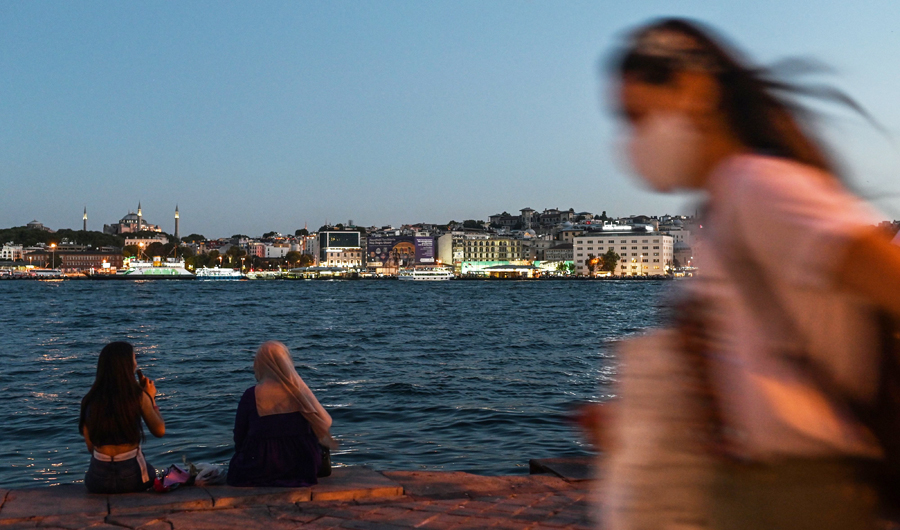Turkish women’s anger as doubts grow over domestic violence treaty
ANKARA: Only days after the sixth anniversary of the Istanbul Convention — the European legal framework to combat domestic violence — Turkey’s government has postponed a crucial meeting on a threatened withdrawal from the treaty.
Turkey was the first country to ratify the convention and spearheaded the drafting of the legal text, but recently threatened to withdraw despite rising domestic violence rates in the country.
The ruling Justice and Development Party (AKP) central executive was expected to discuss a possible pullout from the convention on Wednesday, but postponed the meeting to Aug. 13 amid plans by women’s groups to stage protests over what they claim is an attack on their rights and a threat to their safety. Among those lobbying for the withdrawal are ultra-conservative sections with traditional pro-government leanings.
However, in a surprise move, KADEM — a women’s NGO whose deputy chair is Sumeyye Erdogan, daughter of President Recep Tayyip Erdogan — recently gave its full support to the convention.
“At a time when there is no connection between the Istanbul Convention and the rise in the number of women’s murders, it is not rational to declare the convention, which aims to prevent women’s murders, as a scapegoat,” KADEM said in a statement.
Critics of the convention claim that it threatens the financial and moral integrity of families by empowering women legally, socially and economically.
According to recent figures, 155 Turkish women have been murdered in the first seven months of the year. In July alone, 32 women were murdered, with two more killed during Eid Al-Adha. More than 470 women were killed last year, with women’s rights advocates saying they were “hunted like birds.”
FASTFACT
Critics of the convention claim that it threatens the financial and moral integrity of families by empowering women legally, socially and economically.
Family, Labor and Social Services Minister Zumrut Selcuk has stayed silent despite the rising tide of violence against women.
Women’s groups say that many abusers are set free without proper punishment or with reduced jail terms “because men wear neckties and suits during their court appearances.”
The Istanbul Convention was triggered by a 2009 European Court of Human Rights case that highlighted the failure of Turkish authorities to protect a Turkish woman and her mother from the husband’s domestic violence, resulting in the mother’s killing.
Duygu Koksal, a human rights lawyer, said the treaty is “one of the main tools against ‘discriminatory judicial passivity’ in preventing and combating violence against women.”
Despite laws to protect the family and prevent violence against women, this mentality needs to be constantly challenged, she said.
“The government should show strong political will and refuse to step back and prevent any backsliding.”
In recent weeks, Turkish women posted symbolic black-and-white photos on social media platforms in support of the convention and to show that they might be next to be murdered.
The campaign, dubbed “Challenge Accepted,” drew support from celebrities including Demi Moore, Christina Aguilera and Jessica Biel.
Melek Onder, spokesperson for the We Will Stop Femicide advocacy platform, said there is a clear choice between “supporting women’s right to live decently or turning a blind eye to their brutal murder.”
She told Arab News: “After the isolation process due to the coronavirus outbreak, violence against women increased sharply in Turkey. The latest debates about the potential pullout from the convention added another layer to this downgrading, and monthly death rates rose to about 30 because men became encouraged to kill women without accountability.”
Onder rejects any interim solution. “You either implement it or pull out from it. There is no other option, there is nothing to negotiate,” she said.
“The existence of this convention doesn’t solve all problems, it is just a guarantee for taking protective and proactive measures regarding violence and crime,” she said.

Flights between Turkey, Iraq suspended over coronavirusUAE official tells Turkey to stop meddling in Arab affairs over Libya



